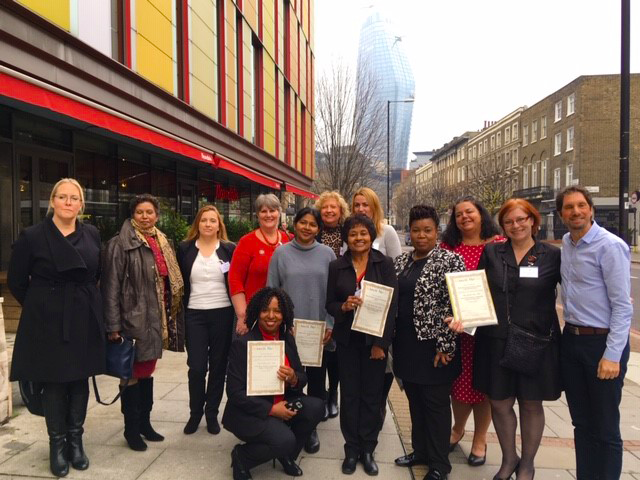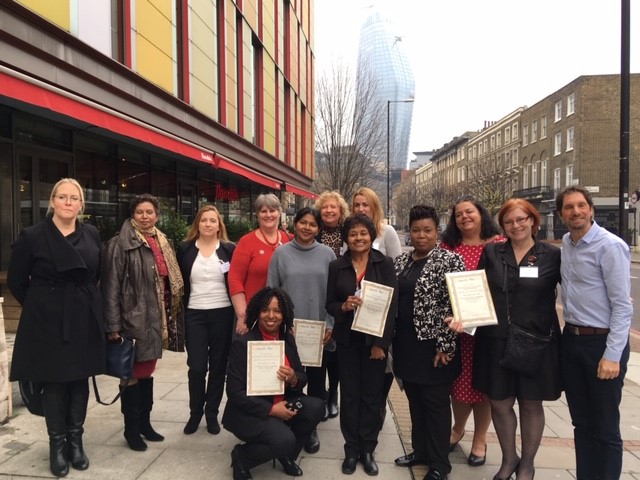The latest funding opportunities and grants for innovation in healthcare.
We update this page monthly so check back for the latest opportunities or subscribe to our newsletter for updates.
Featured Funding Opportunities
Innovate UK innovation loans future economy: Round 16 Deadline 28 August 2024
UK registered businesses can apply for loans for innovative projects with strong commercial potential to significantly improve the UK economy.
Women TechEU Deadline: 3 September 2024
A €12 million, 2-year EU-funded project aimed at supporting women leading deep tech startups across Europe. Their goal is to foster a gender-balanced entrepreneurship ecosystem by offering 160 selected startups €75k grants (non-dilutive finance) each, along with a comprehensive business development program encompassing mentoring and training.
Eureka collaborative R&D: Eurostars 3 Call 7 Deadline: 12 September 2024
UK registered organisations can apply for a share of up to £2.5 million for collaborative research and development (CR&D) in partnership with organisations from participating Eurostars countries.
Design Exchange Partnerships: design the green transition round three . Deadline: 12 September 2024
Apply for funding to develop design–led solutions to address specific challenges around the theme of more-than-human design. You must be based at a UK research organisation eligible for Arts and Humanities Research Council (AHRC) funding.
Canada-UK: Biomanufacturing of Biologics & Advanced Therapies Round 2. Deadline: 16th October 2024
UK registered organisations can apply for a share of up to £3 million for collaboration with Canadian SMEs on joint R&D projects, for enabling technologies and innovations in biomanufacturing of biologics and advanced therapies.
General health innovation funding opportunities:
INNOVATE UK:
Innovate UK is part of UK Research and Innovation, a non-departmental public body funded by a grant-in-aid from the UK government.
Innovate UK Investor Partnerships: SME round 8 Deadline: 14 August 2024
UK registered SMEs can apply for grant funding alongside private investment from selected investor partners.
Knowledge transfer partnerships (KTP): 2024 to 2025 Round 3 Deadline: 25th September 2024
UK registered academic institutions, RTOs or Catapults can apply for a share of up to £9 million to fund innovation projects with businesses or not for profits.
Eureka Disaster Resilience Programme Collaborative R&D 2024Deadline: 31 October 2024.
UK registered organisations can apply for a share of up to £1 million to develop technologies in the field of Disaster Resilience, Response and Recovery, in partnership with organisations from participating Eureka countries.
BIOTECHNOLOGICAL AND BIOLOGICAL SCIENCES RESEARCH COUNCIL:
Biotechnology and Biological Sciences Research Council, part of UK Research and Innovation, is a non-departmental public body, and is the largest UK public funder of non-medical bioscience. It predominantly funds scientific research institutes and university research departments in the UK.
BBSRC standard research grant Deadline: Open call
You can apply for research grants at any time in any area within the remit of BBSRC. BBSRC funds research in plants, microbes, animals (including humans), and the tools and technology underpinning biological research from the level of molecules and cells, to tissues, whole organisms, populations and landscapes.
NATIONAL INSTITUTE FOR HEALTH AND CARE RESEARCH:
The National Institute for Health and Care Research is the British government’s major funder of clinical, public health, social care and translational research. Its mission is to “improve the health and wealth of the nation through research”.
NIHR i4i Launch dates: Product Development Award
i4i Product Development Awards (PDA) support collaborative research and development of medical devices, in vitro diagnostic devices and high-impact patient-focused digital health technologies for use in the NHS or social care system. The expected focus of a PDA is product development required to enable a technology for clinical use or use in social care and/or the clinical development of a laboratory-validated technology or intervention. The research proposals may address any area of unmet need. Projects must have a clear pathway towards adoption and commercialisation.
Product Development Award Call 29: 10 October 2024 / Deadline: 5th December 2024
24/59 Behavioural overweight and obesity management interventions that include long term support in achieving and maintaining weight loss in children and young people.Deadline: 13 December 2024.
DEFENCE AND SECURITY ACCELERATOR (DASA)Deadline: Open call
DASA aims to find and fund exploitable innovation to support UK defence and security quickly and effectively, and support UK prosperity.
Open Competition
The Open Call is one of the funding competition mechanisms DASA uses to find proposals that address challenges faced by government stakeholders. It gives bidders the opportunity to present their ideas to defence and security stakeholders at any time, without waiting for a relevant Themed Competition.
MEDICAL RESEARCH COUNCIL (MRC)
The Medical Research Council (MRC) improves the health of people in the UK – and around the world – by supporting excellent science and training the very best scientists.
ECONOMIC AND SOCIAL RESEARCH COUNCIL (ESRC)Deadline: Open call
ESRC Research Grant
If you have an excellent idea for a research project, the ESRC have their Research Grants open call. Awards ranging from £350,000 to £1 million (100 per cent full Economic Cost (fEC)) can be made to eligible institutions to enable individuals or research teams to undertake anything from a standard research project through to a large-scale survey and other infrastructure or methodological development.
NC3RS:
The NC3RS is a UK-based scientific organisation dedicated to helping the research community worldwide to replace, reduce and refine the use of animals for medical testing.
CRACK IT challenges
Funding of £4M is available through the 2023 CRACK IT Challenges competition* to solve four Challenges, providing academics and SMEs based in the UK and Europe** with the opportunity to deliver scientific and 3Rs benefits through the development and commercialisation of 3Rs products and services that are tailored to end-user needs.
GREEN/NET ZERO FUNDING:
Design Exchange Partnerships: design the green transition round three Deadline: 12 September 2024
Apply for funding to develop design–led solutions to address specific challenges around the theme of more-than-human design. You must be based at a UK research organisation eligible for Arts and Humanities Research Council (AHRC) funding.
Trusts and Charities
The Health Foundation (HF)
HF’s aim is a healthier population, supported by high quality health care that can be equitably accessed. HF learns what works to make people’s lives healthier and improve the health care system. From giving grants to those working at the front line to carrying out research and policy analysis, they shine a light on how to make successful change happen.
The British Heart Foundation (BHF)
BHF provide personal support for clinical and non-clinical cardiovascular researchers at all stages of their career. They also provide grants for short and long term research projects, essential infrastructure and strategic initiatives.
Association of Medical Research Charities
Over 30 years ago a small, diverse group of medical research charities form the Association of Medical Research Charities (AMRC) to unite the sector and provide it with a leading voice. Since then their membership has grown to over 140 charities. In 2018, these charities invested £1.3 billion in medical research.
Other UK Government, Seed Funds & Loans
The British Business Bank Deadline: Open
BBB are a government-owned business development bank dedicated to making finance markets work better for smaller businesses. Whether you’re looking for finance to start a business, grow to the next level, or stay ahead of the competition, they say that they can deliver greater volume and choice of finance.
Small Business Research Initiative (SBRI) funding. General ‘collection’ of news and funds
Information about SBRI for businesses and public sector organisations that might want to use the scheme.
UK Innovation & Science Seed Fund Deadline: Open
The UK Innovation & Science Seed Fund (formerly known as The Rainbow Seed Fund) is a £27.1m early-stage venture capital fund building and growing technology companies stemming from the UK’s research base.
Creative England Investments Deadline: Open
Creative England is supporting SMEs by providing competitive loans to digital businesses in order to make their growth plans a reality. The investments on offer are intended to fuel this fast-growing sector by financing business expansion and new products, leading to the creation of new high-quality jobs and Intellectual Property (IP). Loans from £50,000 – £250,000 are available with repayment terms ranging from 3-36 months. Interest rates range from 5% to 10%, depending on the risk profile of the applicant. This includes companies from within the digital healthcare sector.
International Grants
Global Innovation Fund Applications: Open
GIF focuses on solutions that have the potential to address an important development problem more effectively than existing approaches and can come from anyone, anywhere. They seek out innovations they believe have the greatest potential to improve the lives of millions of people living in poverty.
The EIC Accelerator: Open Competition (Grants only)
The EIC Accelerator supports individual Small and Medium Enterprises (SMEs), in particular, Startups and spinout companies to develop and scale up game-changing innovations.
Other international funds of interest:
The Global Challenges Research Fund
The Newton Fund





